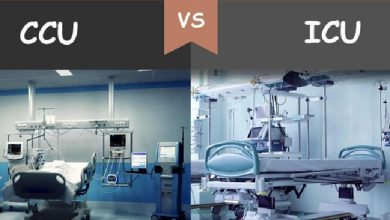درمان ۳ فرد مبتلا به بیماریهای وراثتی با کمک فناوری کریسپر

درمان ۳ فرد مبتلا به بیماریهای وراثتی با کمک فناوری کریسپر
 دو بیمار مبتلا به تالاسمی و یک بیمار مبتلا به کمخونی داسیشکل، پس از اصلاح ژنتیکی سلولهای بنیادی مغز استخوان با فناوری کریسپر، دیگر به انتقال خون که معمولا برای درمان نوع شدید این بیماریهای وراثتی به کار میرود، نیاز نخواهند داشت.
دو بیمار مبتلا به تالاسمی و یک بیمار مبتلا به کمخونی داسیشکل، پس از اصلاح ژنتیکی سلولهای بنیادی مغز استخوان با فناوری کریسپر، دیگر به انتقال خون که معمولا برای درمان نوع شدید این بیماریهای وراثتی به کار میرود، نیاز نخواهند داشت.
پژوهشگران در این آزمایش، برای نخستین بار از فناوری کریسپر برای درمان اختلالات ژنتیکی وراثتی استفاده کردند. هایدار فرانگول (Haydar Frangoul)، پژوهشگر موسسه پژوهشی سارا کانون (SCRI) و از پژوهشگران این پروژه گفت: نتایج این آزمایش نشان میدهند که میتوان بیماران مبتلا به تالاسمی بتا و کم خونی داسی شکل را با روش جدیدی درمان کرد.
تالاسمی بتا و کم خونی داسیشکل، بیماریهایی هستند که در اثر جهشهایی ایجاد میشوند که هموگلوبین را تحت تاثیر قرار میدهند. کسانی که به انواع شدید این بیماریها مبتلا هستند، به تزریق منظم خون نیاز دارند.
این پژوهش جدید، الهام بخش ابداع درمانهایی شده است که هموگلوبین جنینی را تقویت میکنند. پژوهشگران در این آزمایش که با همکاری شرکتهای CRISPR Therapeutics و Vertex انجام شده، سلولهای بنیادی مغز استخوان را از بدن افراد خارج کردند و سپس ژنی را که به تولید هموگلوبین جنینی منجر میشود، با استفاده از فناوری کریسپر غیرفعال کردند.
سلولهای باقی مانده مغز استخوان، با شیمی درمانی از بین میروند و سپس، سلولهای اصلاح شده جای آنها را میگیرند اما شیمی درمانی میتواند عوارض جانبی جدی از جمله ناباروری را به همراه داشته باشد.
دو بیمار مبتلا به تالاسمی که با این روش درمان شدهاند، از زمان درمان تاکنون دیگر به تزریق خون نیاز پیدا نکردهاند. بیماران مبتلا به کم خونی داسی شکل نیز ۹ ماه پس از درمان، نیازی به تزریق خون نداشتند.
مارینا کاوازانا (Marina Cavazzana)، از پژوهشگران این پروژه گفت: نتایج این پژوهش، عالی هستند. با این که این سه بیمار، برخی عوارض جانبی ناشی از شیمیدرمانی را متحمل شدهاند اما اصلاح ژن کریسپر، روشی ایمن به نظر میرسد. در هر حال بیماران باید بقیه عمر خود مورد بررسی باشند تا از عدم وجود عوارض جانبی اطمینان حاصل شود.
در مجموع پنج نفر با این روش تحت درمان قرار گرفتهاند. این آزمایش به خاطر شیوع کرونا ویروس، به حالت تعلیق درآمده بود اما اکنون از سر گرفته شده است.
Two people with beta thalassaemia and one with sickle cell disease no longer require blood transfusions, which are normally used to treat severe forms of these inherited diseases, after their bone marrow stem cells were gene-edited with CRISPR.
“The preliminary results… demonstrate, in essence, a functional cure for patients with beta thalassaemia and sickle cell disease,” team member Haydar Frangoul at Sarah Cannon Research Institute in Nashville, Tennessee, said in a statement.
Beta thalassaemia and sickle cell are diseases caused by mutations that affect haemoglobin, the protein that carries oxygen in red blood cells. Those with severe forms require regular blood transfusions.
This discovery has inspired the development of treatments based on boosting fetal haemoglobin. In this trial, run by collaborating companies CRISPR Therapeutics and Vertex, bone marrow stem cells are removed from people and the gene that turns off fetal haemoglobin production is disabled with CRISPR.
The remaining bone marrow cells are killed by chemotherapy, then replaced by the edited cells. This is done to ensure new blood cells are produced by the edited stem cells, but the chemotherapy can have serious side effects including infertility.
The first two patients with beta thalassaemia no longer need blood transfusions since being treated 15 and 5 months ago. Nor does the patient with sickle cell disease, 9 months after treatment.
The results are excellent, says Marina Cavazzana at the Necker-Enfants Malades Hospital in Paris, France, whose team has treated a 13-year-old boy with sickle cell disease using a different approach.
While the three patients did suffer some adverse effects due to the chemotherapy, the CRISPR gene editing appears safe. However, the patients may need to be monitored for the rest of their lives to be sure it has no adverse effects, says Cavazzana.
Altogether five people have now been treated. The trial was put on hold because of the coronavirus pandemic, but has now resumed.
امتیاز نوشته:
میانگین امتیازها: ۰ / ۵. تعداد آراء: ۰
اولین نفری باشید که به این پست امتیاز میدهید.

